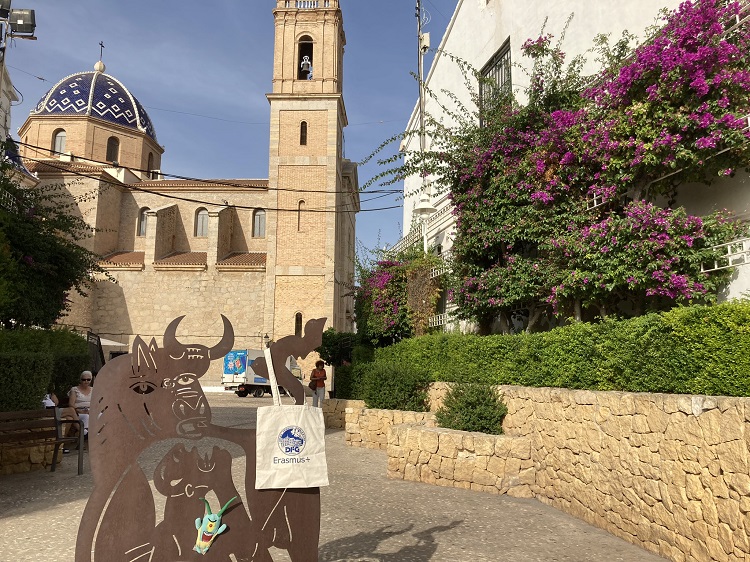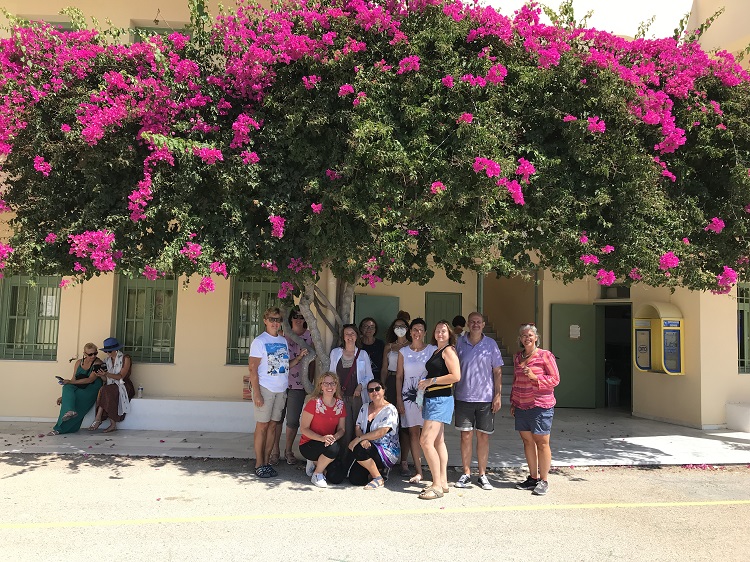
Exhilarated teachers, motivated students, innovative atmosphere, and new activities at school. This is the authentic Erasmus+ experience, introduced by the award-winning project of the Deák Ferenc High School of Szeged.
Erasmus+ mobility empowers colleagues
We talked with Eszter Szabó-Gilinger about the award-winning project of the Szegedi Deák Ferenc High School.
What was the main aim of the project, what started it?
First of all, we wanted to expand our school's international network of contacts. Our older contacts seemed to be fading away, but mobility is essential to keep our students motivated and increase their competence. We also wanted to improve the foreign language skills of our staff, to learn new teaching methods and different approaches, all of which we achieved.
What was the biggest benefit of the project for the participants?
Burnout prevention and inspiration. We thought that this experience could recharge our teachers, as they are under a lot of pressure during the year. Fortunately, the feedback we received showed that it did, feedback, as the programme helped them to go through the school year being more exhilarated. Erasmus+ mobility is a way to empower our colleagues.

What is the biggest change within the institution, what processes have started?
Together with our project "Lifelong Learning is a Must", the consortium KA2 project "Write your Future" ended, and we felt that we had gathered enough experience that we had to make changes. What we have seen is an almost indescribable quantitative and qualitative increase in Erasmus+: committed teachers, innovative atmosphere, and new activities in schools.
What is one achievement that you would highlight?
Internationalisation is a concept that you do not necessarily understand at first. Then, when you understand it, you realise that there are very few places where it actually works organically: work must be done to establish and operate international relations between institutions. As we have become familiar with the educational situation in different countries, we can see what works well for them and how we can change along those lines. The fact that this approach is already natural and part of our everyday lives, in my opinion is an outstanding achievement.
Who else can benefit from the project? Who can benefit from the results besides the target group?
Apart from the students and teachers at the school, I would like to highlight its impact on parents. It seems that student mobility has also made parents interested in the programmes. They also come to information and dissemination sessions more and more often and pay close attention to the opportunities affecting their children.

How much emphasis was placed on dissemination?
We are improving year by year. We think it is important to share with others the joy and knowledge we experience when we travel abroad. We organise a photo exhibition of photos taken on the trips at the school, we hold a dissemination workshop for colleagues at the beginning of the year, and we also have a regular internal newsletter. Students give travelogs to their fellow students, so no one is left out of sharing the results of the project in our institution. We also have our own Erasmus+ blog and Instagram account, which we created specifically to share our Erasmus+ experiences.
What does the Erasmus+ Excellence Award mean to you?
Joy, appreciation, and great honour. The recognition of our work as coordinators. However, this award is an award for our community and is not just for us as individuals. A particularly good, cohesive team has come together to implement the project: the management, the secretariat, the students, our teachers, and our non-teaching staff have all done their share.
|
Institution: Szegedi Deák Ferenc High School Project title: A jó pap holtig tanul (Lifelong learning is a must) Measure: Mobility of staff in public education institutions (KA1 SCH) Coordinator: Eszter Szabó-Gilinger Project website: dfgerasmus.home.blog/ Instagram: @dfgerasmus |
Éva Nóra Kemenár
Tempus Public Foundation,
Directorate of Communication
Last modified: 19-12-2023















